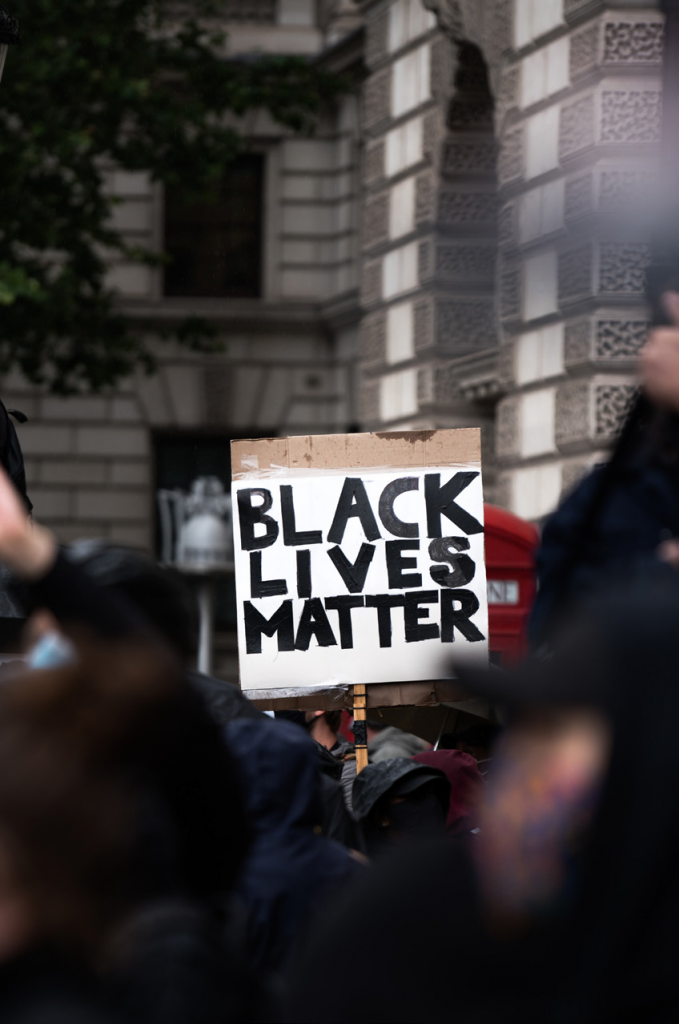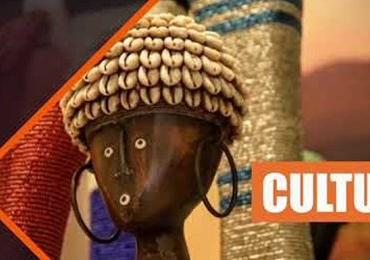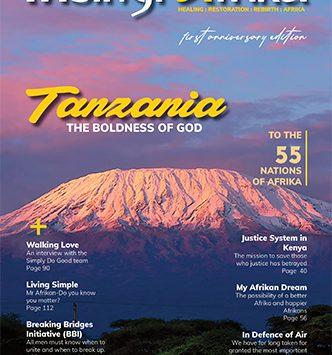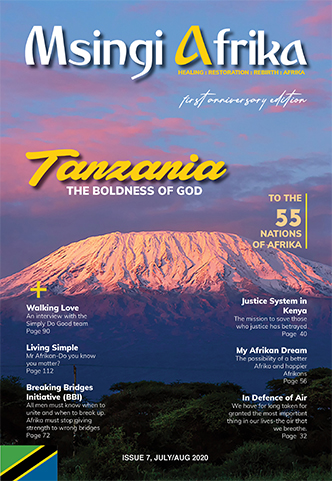
He is a transdisciplinary scholar interested in restorative cultural practices…
Read Next
CONTEXTUALIZING THE ‘BLACK LIVES MATTER’ SOCIAL MOVEMENT
 PIN IT
PIN ITOver the past few weeks, societies across the world have been given an opportunity to scratch their conscious about their paramount values. This follows the death of George Floyd, an unarmed black man who was murdered while in custody of the Minneapolis police in the United States. What some of us find so sad and tragic about Floyd’s brutal murder is its predictable familiarity.
Floyd’s tragic death, as Malawian historian Paul Zeleza has argued, echoes accumulated anger, pain, tiredness, frustration, and sadness at the African American condition following over four centuries of slavery, lynching, racial segregation, the new Jim Crow of mass black incarceration, and a litany of micro aggressions seared into the collective memories of African Americans over generations.
In this brief piece I want to transgress the on-going unrests across the world that have been characterized not by the Covid-19 menace that has kept the world’s communities caged indoors, but by the acute racial crisis in America that is seeing communities across the globe united in protesting not only racial but also other forms of oppression.
One thing made clear by Floyd’s murder is that in spite of its complex and impressive diversity, America remains a seductively wobbly democratic experiment. Kenyan legal scholar Makau Mutua, rightly reasons, that this is simply because democracy in America still sits on the stilts and fictions of liberalism, which are based on pretentious beliefs and inflexible fictions of equality, autonomy and freedom.
Freedom of an individual, especially in a democratic space, ought to proceed from the premise of equality. In America, as I’ve demonstrated elsewhere, long after the enactment of its founding constitution, it is still common to hear of “all men are created equal, that they are endowed by their Creator with certain unalienable Rights that among these are Life, Liberty, and the pursuit of Happiness”. Today, right across the world, constitutional articles in almost all ‘functioning democratic’ countries embed the words ‘equal’ and ‘equality’, heavily drawn from the American document as well as, more recently, the United Nations sponsored Universal Declaration of Human Rights, which makes strong references to individual liberties.
The irony here is that not only was America as a country built by enslaved Africans, but that it should not be lost on anyone that above all, the so called democracy enjoyed by many Americans, was also built on black American effort. For instance, the Civil War was fought over the enslavement of blacks. The civil rights movement made significant strides towards eradicating racial segregation, exclusion and discrimination. Other movements for freedom – women’s rights, anti-war and the Me-Too campaigns have all been predicated on the tactics of the struggles of African-Americans.
The fact that the police force in the US remains the most ruthless in the world should also come as no surprise to anyone who scratches the surface of America’s black history. This is because the origins of policing in the US go back to the ruthless slave patrols of plantations in America. Today’s racial profiling and killing of African Americans by the police and white vigilantes in a way lives up to the beastly reputation of American law enforcement agencies, society, and everyday life.
We Can’t Breathe!
Needless to say, as a community we must continue to resist this barbaric and dehumanizing state-sponsored police culture. With such a suffocating historical background of unfreedoms that led Floyd to simply cry out his last “I Can’t Breathe” to his strangler, what does it all mean for a black person to be free? As a community, how can we become freer? Is freedom a token that is granted for goodness? These questions involve fundamental ethical assumptions and concerns. Like many who’ve addressed such issues in the past, I think the use of virtues such as courage and forbearance presented as positive elements of black conscious in the “Black Lives Matter’ campaigns are a good start in explaining what freedom means, because they reflect a common notion that freedom requires moral integrity.
Amidst the present unity against racial and other forms of oppression, this is also a momentous time for progressive Pan-African movements, activists, and governments, to raise the costs of denigration that continue to destroy the lives and livelihoods of African people all around the world, whether on the continent or in the Diaspora. The struggle against racism must be waged in Europe, the old imperial and colonial architects of the modern oppressive world capitalist system; in the Americas that sanctified racial capitalism; in China, the aspiring superpower of the 21st century, with its own superiority complexes and anti-African racism recently on display during the coronavirus pandemic in which Africans were targeted; and in the countries of the global South that seek to perpetuate, in the 21st century, the hierarchies and mythologies of what Dr. Dubois, a noted black American scholar once identified as ‘the problem of the color line’.
Across the Atlantic, British cultural theorist Paul Gilroy has articulated that the current combined climate of amnesia, ignorance, denial, guilt, and shame, provide a unique political field through which the black community can move and organize. In his earlierwork ‘Postcolonial Melancholia’ (2005), Gilroy developed the idea of melancholia, which demonstrated how certain motifs in Sigmund Freud’s work were taken up by later German thinkers, particularly by social psychologists that were useful in the period of de-Nazification. Gilroy explained that European nations have been in many ways unable to get past their loss of global pre-eminence and that this inability to get past that loss has generated pathological features that continue to misguide their current encounters with ‘the Others’ who are now living in Europe. It is probable that the present day Trump-led America is also misguided by same debris of the European pathology.
Three months ago, commenting on the emerging new form of racism brought about by Britain’s exit from the European Union (Brexit), I argued that over the years, some of us including the likes of Gilroy, Stuart Hall and others that have long advocated for the idea that there ought to be a political or ethical obligation for Britain to deal with racism and its consequences were dismissed by the establishment as endorsers of victimology, threatening Britain’s universal and liberal standards of justice and governance. My argument was, and still is, that today’s socio-cultural and socio-political conflicts, which characterize the relation between Africans and the British political and justice establishments are firmly rooted in Britain’s imperial and colonial histories. Though that history remains marginal and largely unacknowledged, surfacing only in the service of nostalgia and melancholia, it represents a store of unlikely connections and complex interpretative resources. This is because the imperial and colonial life continues to shape political life in a developed but no longer ‘Great’ Britain.
Paul Gilroy has further posited that whatever the immediate institutional settings, the residues of imperial and colonial culture live on whatever ‘race’ is invoked. Race, or as Gilroy rather put it, “the presence of supposedly alien peoples”, constitutes the visible link to a cultural pathology which reaches into the innermost ways in which British society operates today. Indeed for ages, arguments over racial divisions, over who is human enough to qualify for rights and recognition have impinged upon the formation of epistemological and ethical as well as historical and political categories. During the 20th century, these arguments became closely connected with the complex demands for justice and freedom made by Africans and other colonised people bent on changing their political status by seeking liberty from and equality with those who had colonised them.
Black Lives Matter
Black Lives Matter social movement has successfully managed to highlight the depth of brutality, injustice and unaccountability that American society, especially law enforcement, harbors toward black people. The movement has brought to the fore the unchecked powers of the police, their military weaponry and their capricious use of it. They have demonstrated that the problem of policing in America is more than that of individual bad officers; the problem, they have highlighted, is a culture that protects wrongdoers, tolerates mendacity, rewards blind loyalty and is fiercely resistant to change. More deeply, the movement has shown that America has a law enforcement culture that does not regard black lives as worthy of protection.
Stepping back historically, although America and most of the world have chosen to live by the fictions of liberalism, and not those of fascism, the demons of the latter are very present, and more often than we like to admit, dominant. We mustn’t forget that what Floyd encountered is deeply embedded in the American psyche, where Derek Chauvin, his killer-cop felt he was entitled to kill a black man, with total impunity. We mustn’t also forget that America is fundamentally a country of immigrants, even if white Americans think they own it.
Under the current supportive global conditions, triggered by the acute crisis of the capitalist enterprise’s exhaustion of the‘general profitability’, it is necessary to appreciate the impact of the work of ‘Black Lives Matter’ social movement that have done the black community an admirable service by exhaustively highlighting what Kwame Ture termed as ‘institutional racism’deeply entrenched in the American psyche and more importantly for calling out loud for fundamental structural changes in America’s social, political and cultural structures. The struggle as they say CONTINUES!
The author is the director of Grundtvig Africa House (GAHO) based in Nairobi, Kenya. gahokenya@gmail.com
Subscribe now for updates from Msingi Afrika Magazine!
Receive notifications about new issues, products and offers.
What's Your Reaction?
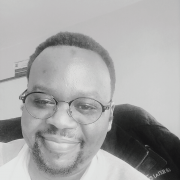 PIN IT
PIN ITHe is a transdisciplinary scholar interested in restorative cultural practices as well as the role indigenous knowledge systems play in the administration of justice in Africa. Educated at Stanmore, he read Politics at Middlesex for his undergraduate degree and Human Rights for his postgraduate at Bickbeck College. He holds two further postgraduate degrees in Ethics and in Public Administration from Nairobi. Wanda is very interested in how knowledge is generated and applied in relation to community development. His current research interests cover: Restorative democracy in Eastern Africa; Afrikology; Community Sites of Knowledge and Indigenous knowledge systems; Epistemology, Ethics and Culture. gahokenya@gmail.com









